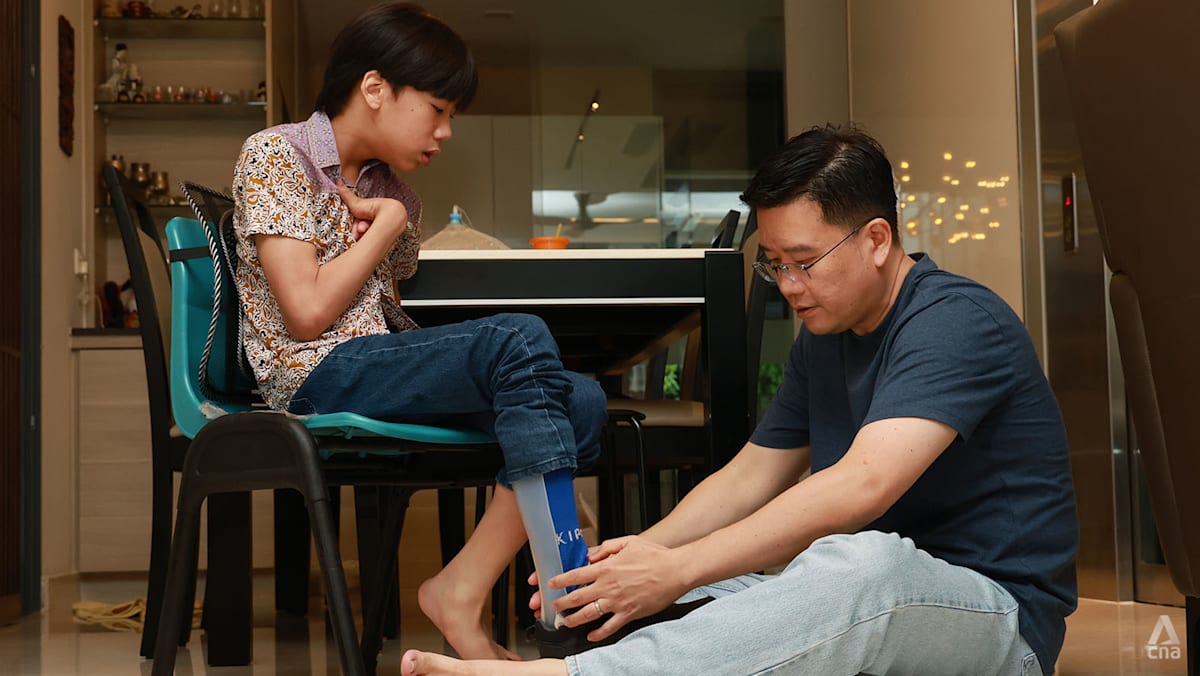Mr Chris Lim, communications manager from Caring SG, a registered charity aimed at supporting caregivers of people with special needs, said that a “relatively large proportion” of their membership sign-ups since its founding in 2020 comprise 30- to 50-year-olds, many of whom are likely to be in the workforce.
“We’ve observed more caregivers in this group juggling paid work with caring for dependents with special needs and, in some cases, ageing parents (as well),” he added.
“This profile appears to be increasingly common, particularly among younger caregivers still early in their careers.”
Dr Millie Su Yun, a senior lecturer with the SR Nathan School of Human Development at the Singapore University of Social Sciences (SUSS), said that the government is also encouraging ageing in place. Hospitals may also be “much more inclined” to discharge patients to the community, situating caregiving in the family.
“If you consider these macro, socio-economic level factors, caregiving is going to be a very prevalent trend moving forward,” Dr Su added.
Against the backdrop of an ageing population, there have been strides in recent years to help mitigate the costs of informal caregiving, including the Home Caregiving Grant.
Even so, social service agencies said that this growing demographic of full-time working caregivers faces unique challenges that are not always adequately addressed.
WHEN CAREER MEETS CAREGIVING
For many working adults, being a caregiver is rarely a planned decision, but a responsibility often thrust upon them when family members have a disability or long-term illness or become less mobile due to age.
Caregiving seldom respects office hours: Doctor appointments and emergencies collide with the nine-to-five, and the fatigue from long nights erodes performance by day. This means it’s common for caregivers to find themselves stepping back from the careers they loved – taking breaks, shifting to part-time work or changing industries – as their professional lives warp around someone else’s needs.
Notwithstanding the heavy burdens of caregiving, eight working caregivers told CNA TODAY that employment is essential both for income and a sense of purpose.
What enables Ms Ang to balance her day job with her caregiving load has been the support at work, for instance, meetings scheduled later in the morning to give her enough travel time.
“My colleagues came to visit me when my husband first had a stroke and went into a coma,” she recalled. “I told my boss, ‘Please don’t take away my projects. I can always WFH – work from hospital. Don’t take away my projects, because I need the money’.”
For Ms Faiza Sanip, 56, having to quit her management position overnight to look after her now 30-year-old son who has schizophrenia was “very challenging”. Someone who suffers from this serious mental illness requires close supervision to ensure medication is taken regularly, among other things.
“At the time, I was almost 50 and I was having an identity crisis,” Ms Faiza said. “I was managing a department and had staff members under me, but it was very clear that as a caregiver, I could not handle that kind of stress anymore and work concurrently.”
She later returned to the workforce after her son’s condition improved and she is now a programme manager at a charity, Mindfull Community, which offers flexi-work arrangements.
